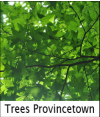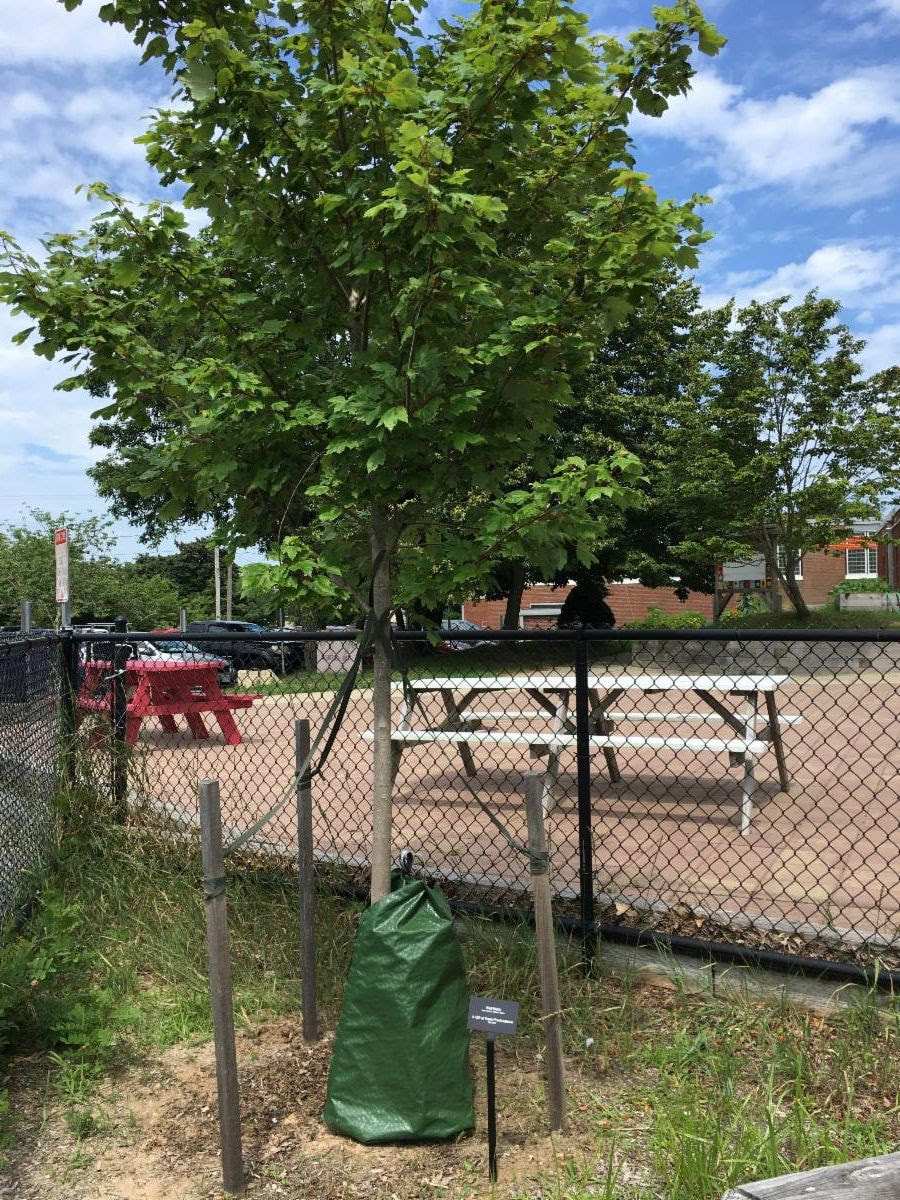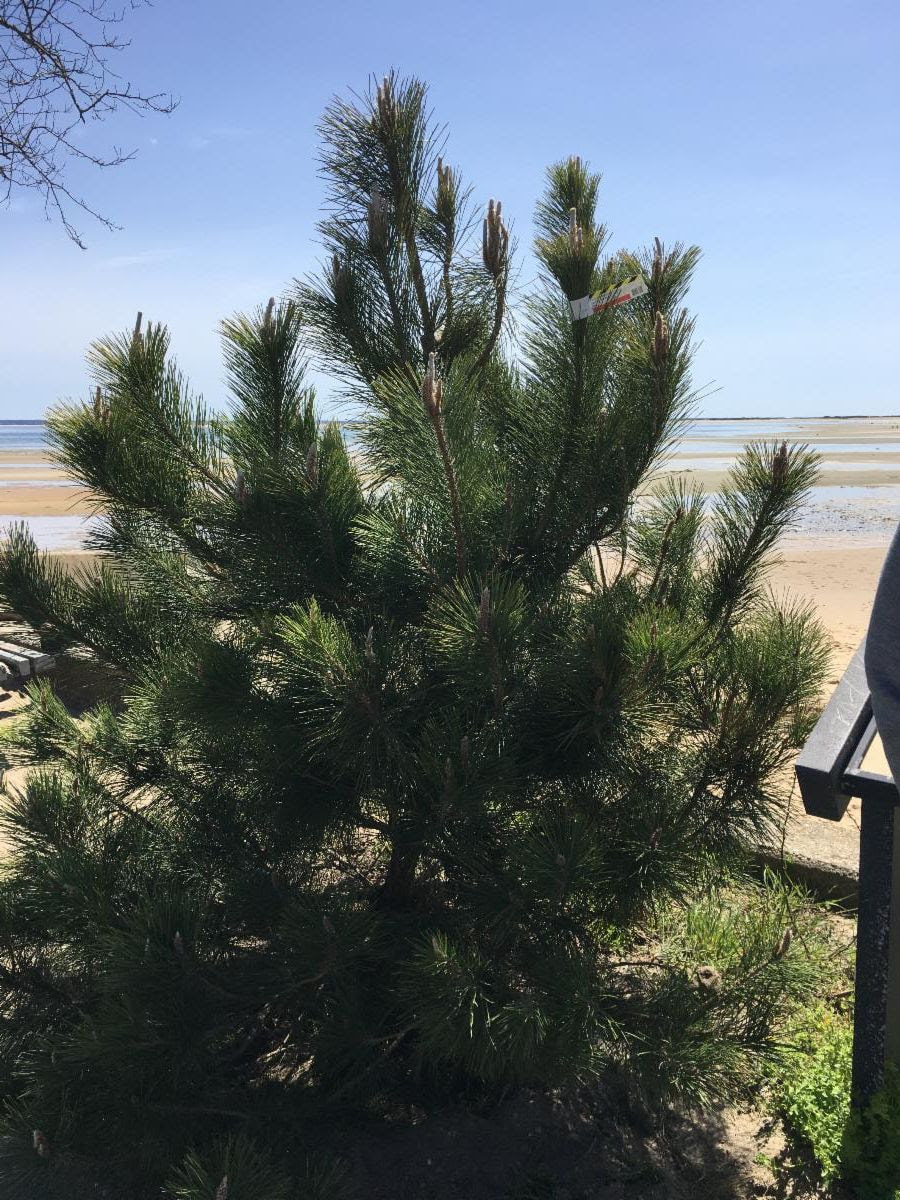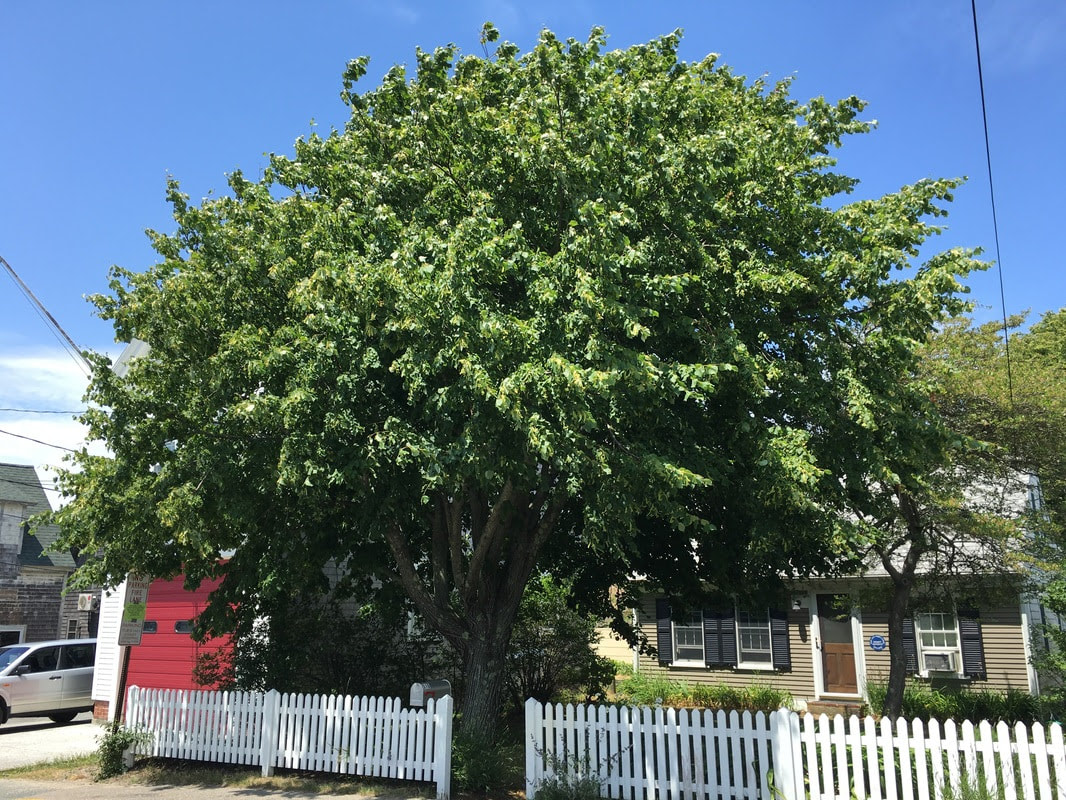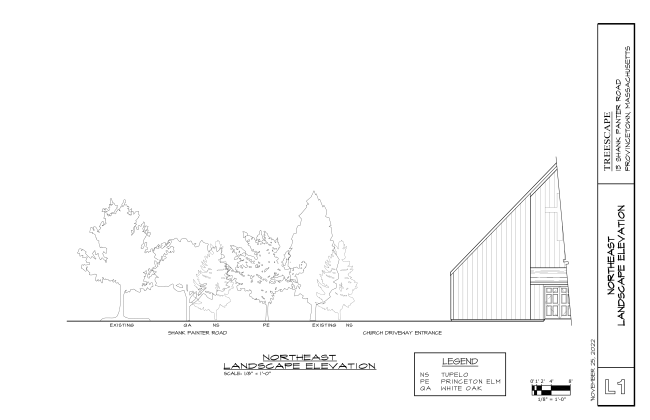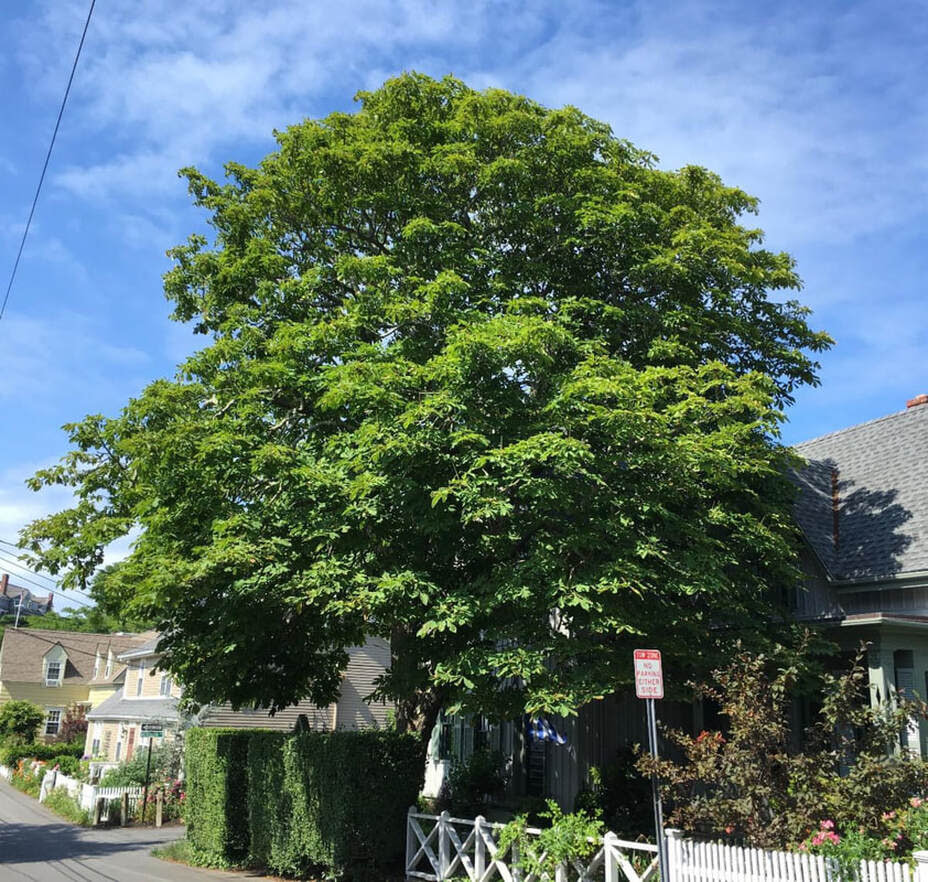2022 Year in Review
Hello Dear Friends,
Trees Provincetown is a community resource dedicated to planting and caring for trees in Provincetown and advocating for their protection and well-being. Our activities focus on working with the Tree Warden, the Tree Advisory Group, and the community to provide guidance and funding for the planting, protection and preservation of trees. With the climate crisis upon us, our work with trees becomes all the more important for the protection and preservation of the town itself.
Planting Trees in the Community, 35 and Counting!
We’re happy to report that, since we started planting trees in Provincetown, we’ve planted 35 in all. We’ve planted specimen trees for community nonprofits like The Provincetown Theater and The Commons. We’ve planted shade trees on town properties like the school playground and the B-Street Garden. We’ve planted several trees at affordable housing projects in Provincetown. We’ve sponsored a memorial tree adoption in front of the former historic Burch House on Bradford Street.
Hello Dear Friends,
Trees Provincetown is a community resource dedicated to planting and caring for trees in Provincetown and advocating for their protection and well-being. Our activities focus on working with the Tree Warden, the Tree Advisory Group, and the community to provide guidance and funding for the planting, protection and preservation of trees. With the climate crisis upon us, our work with trees becomes all the more important for the protection and preservation of the town itself.
Planting Trees in the Community, 35 and Counting!
We’re happy to report that, since we started planting trees in Provincetown, we’ve planted 35 in all. We’ve planted specimen trees for community nonprofits like The Provincetown Theater and The Commons. We’ve planted shade trees on town properties like the school playground and the B-Street Garden. We’ve planted several trees at affordable housing projects in Provincetown. We’ve sponsored a memorial tree adoption in front of the former historic Burch House on Bradford Street.
During 2022, our plantings totaled 10 trees all around town including at Harbor Hill, the West end boat ramp, Grace Hall Parking Lot, VMCC and property owned by the Provincetown Housing Authority on Pearl Street. Most of these trees have been outright gifts from Trees Provincetown to the community. Others are memorial trees funded by donors in honor of beloved family members, including pets, with Trees Provincetown arranging the plantings free of charge.
Planting trees in town is our reason for being. Our mission becomes more challenging with the summer droughts and the increasing scarcity of public planting sites. But we remain committed now more than ever. Every new community tree we plant helps restore the tree canopy we once had, protects against storm-water runoff and soil erosion, sequesters carbon, and reminds us that some of the most wondrous things alive are tall and green.
Advocating for More Trees on Shank Painter Road
The Provincetown Department of Public Works is planning the redesign of Shank Painter Road. The redesign includes planting a number of trees along the roadway. In the past year, both as part of the Provincetown Tree Advisory Group and as an independent nonprofit, we’ve urged DPW to change the plan to include significantly more trees than the plan envisions, and to select native shade trees for the plantings, including Princeton elm, White oak and Tupelo.
In addition to a list of recommendations, we submitted this landscape elevation to illustrate that planting these trees is feasible and would create a welcome canopy over Shank Painter Road, greatly enhancing the attractiveness of this important gateway.
Guest Column: Caring for Trees, Helping the Planet
By Tina M. Trudel
Composting has historically been a smart way for people to handle waste, as part of a cycle of producing food and returning leftover vegetable and fiber matter back to the earth for another cycle of growth. Nature gives us the example of how the forest grows, where nutrition from the soil is taken up by the trees, and then returned via decomposition adding nutrients back to the soil through fallen logs, leaves, fruit, and nuts. On a large scale, this occurs on farms where manure, fibrous, and other organic materials are mixed and turned in large piles. But what about the small-scale urban dweller or suburban homeowner who must contend with concerns about pests and odors?
Common compost concerns include attracting flies, cockroaches, and rodents. To avoid these common pests, follow these three tips:
- Keep your indoor bin closed, and make sure it closes properly and the outside is clean of material residue.
- Line your open-bottom outdoor compost bin with metal hardware cloth to prevent rodent access
- Never put oily products or animal products (meat, bones, cheese) in your compost.
Another major concern of composting in a smaller space is that of odor. Smelly compost piles can be more difficult to manage, but also come down to three elements:
- The most crucial aspect of odor control is the balance of ‘brown’ to ‘green’ materials in your pile. It’s easy to remember to keep these components in balance, with brown matter 75%- 50% of your material and green matter 25%-50%. Add more brown matter a bit at a time if your compost is too wet or dense. Make sure all elements are chopped or shredded.
- Brown material consists of dry, woody, fibrous material such as dry leaves, wood chips, straw, sawdust, paper, cardboard, and cornstalks. These materials add carbon, bulk, and air gaps.
- Green matter consists of wetter materials or those that were recently growing, and may not necessarily appear green, such as food scraps, coffee grounds, manure, grass clippings, or fresh weeds. These materials add nutrients, nitrogen, and moisture.
- A second key aspect of compost odor management is to ensure that your compost is properly aerated. If your pile is fresh and you can still identify specific components such as kitchen scraps, turn the pile twice per week. Once the compost matures and materials are less identifiable, once per week turning for aeration usually is enough.
- Lastly, compost that is too wet can be smelly. Increasing brown matter such as cardboard and paper, as well as improving aeration, can help maintain optimum moisture and minimize odor.
Outdoor compost tumblers or bins can be easily added to a typical yard or patio. In this compost application, the ratio of 1 part green to 3 parts brown is usually an optimal starting point, layering the materials to tumble or turn over. Within a home or apartment setting, contained compost systems can be highly effective. Worm composting (vermiculture) has the triple benefit of breaking down scraps, producing worm castings as garden fertilizer, and providing a fun and interesting project for the family, that can be set up in less than 2 sq. ft. of space. Important tips are to avoid adding strong scented vegetable matter such as onion, garlic, or citrus peels, feed only when most of the kitchen scraps are consumed, and keep the moisture at the level of a wrung out sponge.
Instructions for DIY worm composters: How to Create and Maintain an Indoor Worm Composting Bin | US EPA and How to Make a Worm Composter Using Plastic Buckets (thespruce.com). Commercial vermiculture kits and ‘Red Wiggler’ composting worms are also available for purchase online.
Tina M. Trudel, PhD is a certified permaculture designer and clinical neuropsychologist with a background in the effects of environmental neurotoxins on humans. She is a member of the Board of Directors of Trees Provincetown.
Planting Trees Is Helping the Planet
One way to help combat climate change in Provincetown is by offering a planting site on your property for a new shade tree planted by the Tree Warden. Trees planted by the Tree Warden on private property within 20 feet of a public way with permission from the property owner become community trees protected by our tree bylaw. Called “setback trees,” they are purchased and planted by the Tree Warden free of charge to the property owner. In exchange the owner commits to watering and caring for the tree. Please call the Tree Warden, Jim Vincent (508-487-7060), to learn more about this opportunity to increase the tree canopy in town for free.
One way to help combat climate change in Provincetown is by offering a planting site on your property for a new shade tree planted by the Tree Warden. Trees planted by the Tree Warden on private property within 20 feet of a public way with permission from the property owner become community trees protected by our tree bylaw. Called “setback trees,” they are purchased and planted by the Tree Warden free of charge to the property owner. In exchange the owner commits to watering and caring for the tree. Please call the Tree Warden, Jim Vincent (508-487-7060), to learn more about this opportunity to increase the tree canopy in town for free.
In Memoriam
We salute Barbara Rushmore, who passed away in late 2022 at the age of 98, for her decades of devotion to planting trees in Provincetown. Barbara was on our Board of Advisors and was one of our major donors. We are grateful for her example, her wisdom, and her generosity towards the town for 60 years and towards Trees Provincetown in her last planting seasons.
We salute Barbara Rushmore, who passed away in late 2022 at the age of 98, for her decades of devotion to planting trees in Provincetown. Barbara was on our Board of Advisors and was one of our major donors. We are grateful for her example, her wisdom, and her generosity towards the town for 60 years and towards Trees Provincetown in her last planting seasons.
Ways to Give
Trees Provincetown relies on donations to fund our activities in planting and protecting our community trees. Any amount helps. Recurring, monthly donations are especially helpful and play an ongoing role in our success. Because we are a 501(c)(3) charitable organization, donations are tax deductible as allowed by law.
Thank You!
The simple act of caring for trees improves life on earth and in this town. It takes a stance on global warming and what we can do about it. We’re excited to be doing this in our community. Thank you, all, for your enthusiasm for our work and your support of our efforts!
Margaret Murphy
Founder and President, Trees Provincetown
Board Members:
Mark Collins
Zehra Khan
Chris Mathieson
Margaret Murphy
Tina Trudel
Board Advisors:
Tim Callis
Ken MacPhee
Todd Westrick
Trees Provincetown relies on donations to fund our activities in planting and protecting our community trees. Any amount helps. Recurring, monthly donations are especially helpful and play an ongoing role in our success. Because we are a 501(c)(3) charitable organization, donations are tax deductible as allowed by law.
Thank You!
The simple act of caring for trees improves life on earth and in this town. It takes a stance on global warming and what we can do about it. We’re excited to be doing this in our community. Thank you, all, for your enthusiasm for our work and your support of our efforts!
Margaret Murphy
Founder and President, Trees Provincetown
Board Members:
Mark Collins
Zehra Khan
Chris Mathieson
Margaret Murphy
Tina Trudel
Board Advisors:
Tim Callis
Ken MacPhee
Todd Westrick
Trees Provincetown
535 Commercial Street #1
Provincetown, MA 02657
treesprovincetown.org
treesprovincetown@gmail.com
Production Credit: Naya Bricher
Photo Credits: Margaret Murphy and Tina Trudel
535 Commercial Street #1
Provincetown, MA 02657
treesprovincetown.org
treesprovincetown@gmail.com
Production Credit: Naya Bricher
Photo Credits: Margaret Murphy and Tina Trudel
